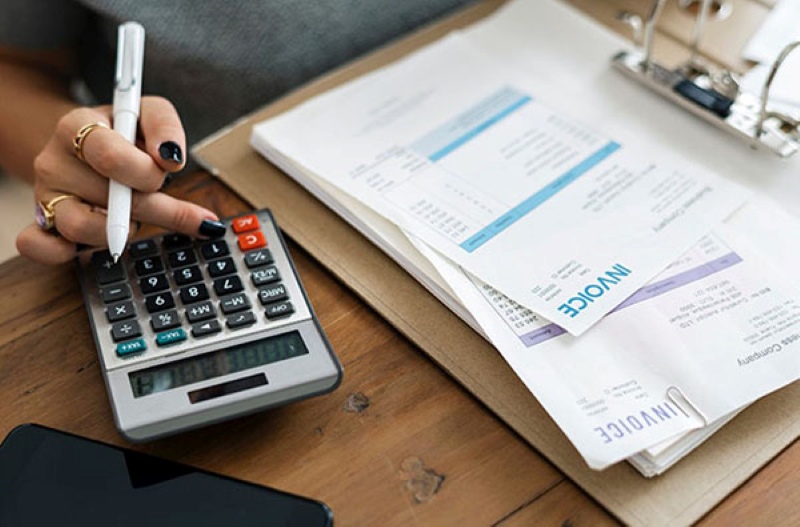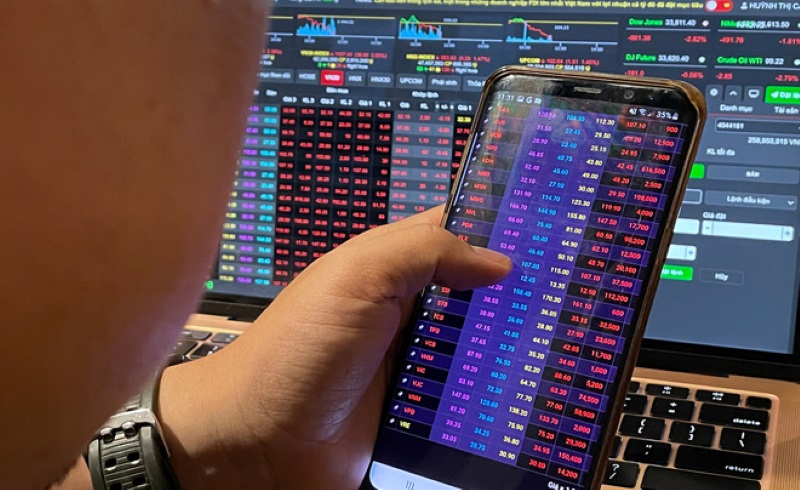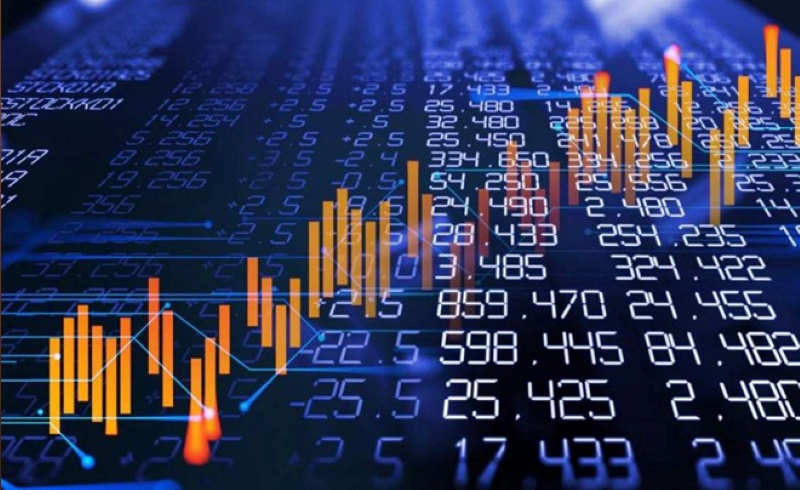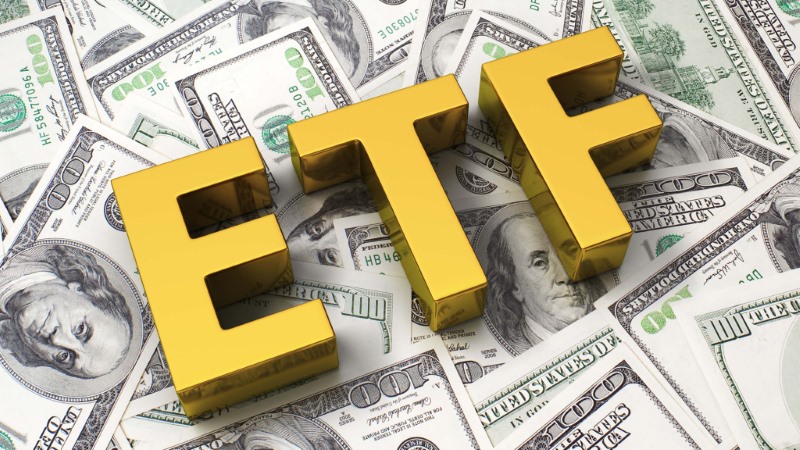What is a derivative contract? This is an important financial tool that helps investors manage risks and optimize profits. Learn how to invest effectively.
1. What is a derivative contract?
A derivative contract is a type of financial contract entered into between two or more parties for the purpose of executing transactions involving underlying assets. These assets may include commodities, stocks, bonds, securities, currencies, or interest rates.
This type of contract not only helps to prevent and disperse financial risks, but also helps to protect the interests or bring higher profit opportunities to the parties involved in the transaction.

2. Popular types of derivative contracts today
In finance, derivative contracts are divided into four main types. Here are the details: derivative contracts:
2.1 Futures contracts
A futures contract is an agreement between two parties to buy or sell a specific asset at a predetermined price at a future date. The underlying asset of a futures contract can include a variety of commodities, from precious metals to agricultural products to stocks.
Example: Party A agrees to sign a forward contract with Party B to buy 1 ton of rice at 7,000 VND/kg within 2 months. After this period, regardless of whether the price of rice on the market increases or decreases, Party A must still buy and Party B must sell at the agreed price.
Profit or loss is determined based on the difference between the contract price and the actual price at the time of the transaction. This type of contract is often used to reduce risk or speculate on market prices.

2.2 Swap Contract
A swap is an agreement that allows parties to exchange cash flows or periodic payments under pre-agreed conditions. These payments are usually based on interest rates or currencies over a specific period of time.
In Vietnam, interest rate and currency swaps are often used by banks and financial managers to reduce the cost of borrowing or financing investments. This helps to optimize costs and manage risks more effectively.
2.3 Futures contracts
A futures contract is a type of derivative contract that allows parties to trade an asset at a predetermined price at a specific time in the future.
The salient feature of this contract is that the parties are required to perform their obligations when the contract falls due. If the seller fails to deliver the asset as agreed, they will have to pay the difference based on the contract value and the market price at that time.
2.4 Option contracts
Options contracts provide flexibility to investors by allowing them the right to buy, sell, or not execute a trade if market conditions are unfavorable.
Unlike other contracts, options do not oblige the buyer to perform the obligation. However, to obtain this option, the buyer must pay an option premium to the seller. This helps investors minimize risks in adverse market situations.
3. Instructions on how to calculate the value of derivative contracts
After the investor understands What is a derivative contract?, investors need to know how to determine the value of a derivative contract. First, it is necessary to understand the following important concepts:

3.1 Margin Concepts
- Variation Margin (VM): This is the amount added to the margin account when the investor is at risk of loss.
- Initial Margin (IM): This is the required amount of money to be deposited into the trading account to ensure payment capacity with the securities company (CTCK). The calculation formula is as follows:
IM = Transaction value × Contract multiplier × Number of contracts traded × Required margin ratio
- Maintenance Margin (MR): Is the minimum amount of capital required to keep a margin account in active status. Formula:
MR = IM + VM
- Valid collateral value (VKQ): Assets used as collateral, including cash or securities, are calculated based on the asset value and discount rate.
- Margin utilization ratio (AR): Calculation formula:
AR = MR / VKQ
3.2 Concepts of trading positions in derivative contracts
- Long Position: Investors expect the VN30 index to increase in price in the future and buy contracts.
- Short Position: Investors predict that the VN30 index will decrease in price and decide to sell the contract.
- Position Limits: Is the number of derivative contracts that an investor can hold at one time. This is to avoid excessive speculative risks and ensure market stability.
3.3 How to calculate derivative contract price
This calculation method is applied to VN30 index futures, a popular derivative product in Vietnam. The contract value is determined based on the difference between the daily settlement price (DSP) and the volume-weighted average price (VWAP). Then, the investor's payment obligation is calculated by netting.
Formula to calculate variable margin value:
End of day VM = (DSPt – VWAP) × Number of contracts × Multiplier
In there:
- DSP: End of day settlement price.
- VWAP: Volume-weighted average price.
- When an investor has a buy position: VWAP = Weighted Average Purchase Price.
- When an investor has a short position: VWAP = Weighted Average Selling Price.
- If there are no intraday trades: VWAP = DSPt-1.
- Number of contracts: The symbol (+) stands for buy position, (-) stands for sell position.
Illustrative example
Suppose an investor makes the following transactions:
- Open 4 buy positions VN30F2409 at 1,270 points.
- Then, open 2 more buy positions VN30F2409 at 1,275 points.
When holding this position until the end of the session, assume the daily settlement price (DSP) is 1,273 points.
- Weighted average purchase price:
(4 × 1.270 + 2 × 1.275) / 6 = 1,271.6 points
- Variable Margin (VM):
VM = (1,273 – 1,271.6) × 6 × 100,000 = 840,000 VND
As a result, the profit that the investor gets from this transaction is 840,000 VND.
4. Derivative contract expiration
The maturity of a derivative contract is understood as the time when the derivative contract ceases to be effective, requiring the parties involved to perform their committed obligations. On this day, transactions related to the contract must be completed according to regulations.
With futures contracts, derivative maturity may include delivery of the underlying asset or cash settlement. For options, the buyer has the right (but not the obligation) to exercise the contract.
Each derivative contract is assigned a specific expiration date when it is created. This is the last day the contract is valid, so investors need to actively execute transactions before or on this date. Otherwise, the trading position will be automatically closed when the expiration date ends.
Understanding the maturity date to plan for profit or loss is a key factor in optimizing investment efficiency.
Suppose you open a long position of 10 VN30F2206 futures contracts, the contract expiration date is 16/06. In this case, you need to close the position before or on the same day to lock in profit/loss. If you do not, the contract will be automatically closed and you will no longer have the right to buy according to the original position.
In case you want to maintain your long position, you have to sell the current contract and open a new contract for the next month. Then the settlement value of the contract will be calculated based on the closing price in the ATC session of the expiration date.
5. How to buy derivatives contracts
To participate in derivatives trading, investors equip themselves with investment knowledge basics, understand how it works and prepare thoroughly before starting. The process of buying a derivative contract is carried out through the following steps:
- Open a trading account: Investors need to register an account at a securities company that provides derivative services. Make sure the account has enough capital to meet the initial margin requirement.
- Deposit: To start trading, investors need to deposit an initial margin amount according to the regulations of the securities company.
- Select the appropriate contract type: Based on investment strategy and market analysis, investors choose the appropriate type of derivative contract.
- Make a transaction: Investors can place orders to buy or sell derivative contracts through the securities company's trading platform.
- Position tracking and management: After making a transaction, it is necessary to closely monitor market developments and adjust positions promptly to optimize profits or minimize risks.
Conclude
Derivative contracts are important financial instruments, providing many investment opportunities and effective risk management. However, to achieve the best results, investors need to master the basic knowledge, understand the regulations and have a reasonable trading strategy. If used properly, derivative contracts will be a great assistant in optimizing profits and managing personal finances.HVA Hopefully the above information has provided useful information, helping you understand clearly. What is a derivative contract?, how to calculate value, and how to participate in effective transactions. Wish you successful and sustainable investment!











